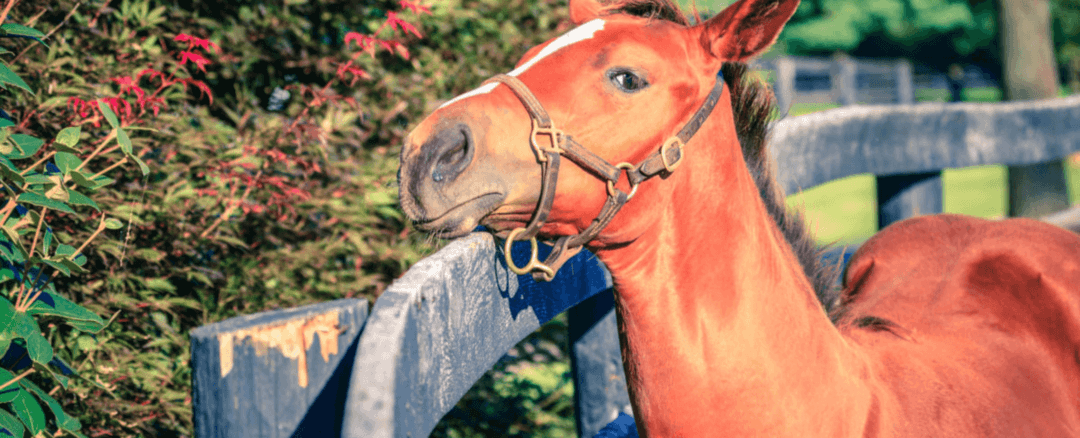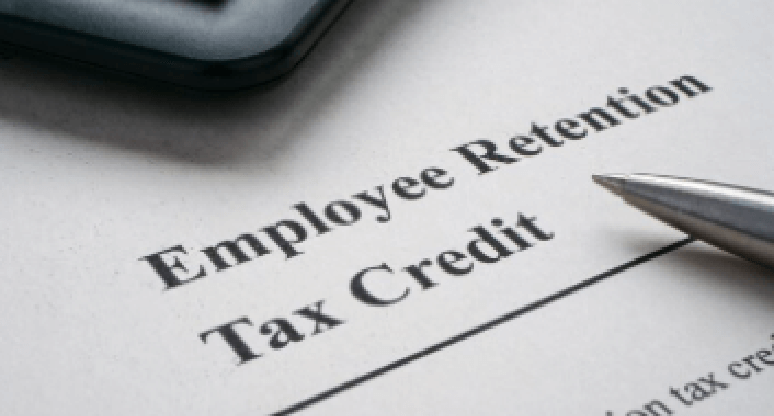OVERVIEW
An Overview Of Sales And Use Tax
In the United States, over 10,000 state and local jurisdictions impose sales and use taxes. 45 states and the District of Columbia impose the taxes, as do a plethora of city, county, and other local governmental units. Only Alaska, Delaware, Montana, New Hampshire, and Oregon do not impose a sales or use tax, although Alaska permits local jurisdictions to levy the taxes. Indeed, sales and use taxes account for twenty to twenty-five percent of total state and local tax collections.
Every taxing jurisdiction has its own set of laws related to these taxes. When that fact is combined with the number of taxing jurisdictions, it is no surprise that sales and use taxes are riddled with complexities. In the equine industry, the complexity is heightened by the mobile or transient nature of Thoroughbreds and Showhorses. This overview and the accompanying map are intended to aid buyers and sellers in beginning the analysis of their potential sales and use tax obligations when buying and selling horses for racing, showing, and breeding.
After the DISCLAIMER below, this overview has three sections. The first section explains sales and use taxes from 30,000 feet, as the saying goes. It includes information about property and services typically subject to tax, the difference between the “sales” tax and “use” tax, why use taxes matter, and the state(s) where sales or use taxes should be paid. The second section addresses exemptions—first exempt transactions, second exempt property, and then, exemption certificates. Finally, there is a quick look at the mysteries of sales taxation of breeding fees and transactions involving shares in horses. The information referenced reflects law in effect as of September 30, 2021.

Disclaimer
The structure of transactions involving the sale and purchase of horses is often unique, as are the plans for the horses. Both the structure of the transactions and the plans for the horses impact any sales and use tax analysis. Every salient fact is important to a proper sales and use tax analysis. Thus, this overview and map are not intended as legal or tax advice and must not be relied on as such. Instead, the information is intended to be a guide and reference tool, a starting place for analysis. Every buyer and seller should contact their tax advisor to discuss a transaction’s specific facts and obtain the most accurate advice relative to the transaction.
We have made every effort to make this overview and the map error-free, but no one is perfect. Thus, we invite you to advise us of any potential errors in what is reported. Also, we intend to update the rates and other map information when states make changes, and we intend to continue adding states. Finally, because there is a lot of activity surrounding sales and use taxes in the states, we recommend checking back each time you analyze a new transaction.
Basics Of Sales And Use Tax
Sales And Use Taxes – A View From 30,000 Feet
Understanding sales and use taxation of horse transactions begins with a grasp of sales and use taxes generally. These taxes are imposed on a “transaction.” Most state laws define a transaction as the transfer of tangible personal property or the performance of a service for a consideration. Specifically, the taxes apply to retail sales and leases or the storage, use, or other consumption of tangible personal property, things perceptible to the senses, and a growing number of services. Typically, sales and use taxes do not apply to transactions involving real estate or intangible property, such as membership interests in limited liability companies.
Unless a statutory exemption applies, all gross receipts derived from the sale of tangible personal property, other than sales for resale, are presumed by the states to be taxable. Because horses are tangible personal property, sales or use tax will apply unless there is an applicable exemption.
Note that “sales for resale” are specifically excluded from taxable sales and thus are exempt. Every state for which information is presented has a “sale for resale” exemption. Thus, a sale of a horse for resale, that is, pinhooking, will be exempt from sales tax. The seller must obtain and maintain a “resale certificate” from the purchaser to prove the sale was not taxable. When the horse is sold to the ultimate consumer, sales or use tax will be due unless an exemption applies.

Sales Tax Versus Use Tax
Jurisdictions that impose a sales tax also impose a complementary use tax. Use tax is imposed on the storage, use, or other consumption of taxable property in a state if no sales tax was paid to that state when the property was purchased. The use tax places local retailers, who must collect sales tax, on equal footing with their out-of-state competitors. Previously, few out-of-state sellers had to collect tax. However, this changed after the United States Supreme Court decided South Dakota v. Wayfair (think furniture) in June 2018.
Before Wayfair, sellers had to have a physical presence in a state before the seller was required to collect the state’s sales tax. However, many online and other remote sellers have a limited physical presence. As a result, states argued they were losing millions of dollars in taxes because the remote sellers did not have a physical presence, so they were not required to collect the tax. To make a long story short, in Wayfair, the Court held that “economic presence” in a state, i.e., sales exceeding certain thresholds, such as $100,000 or 200 separate sales transactions, could give a state legal authority over a seller, and the state could require the seller to collect its taxes.

Why Use Tax Matters
All 45 states that impose sales tax have a physical and economic presence standard that dictates when sellers must collect sales tax. Many states set their economic presence threshold at sales above $100,000, a low dollar amount in many equine contexts. The new obligations to collect tax because of these economic thresholds are one of two reasons why use taxes are important. Whereas a seller previously had no obligation to collect sales tax, the seller is now obligated to collect the tax if the seller has a physical or economic presence in a state. However, if the seller doesn’t collect sales tax, the purchaser must pay use tax unless an exemption applies!
The second reason use taxes are important is that horses may be purchased in one state and trained, boarded, or raced in other states. Unlike sales tax, which the seller generally collects from the purchaser and remits to the taxing authority, use taxes are paid to the state by the purchaser. For example, assume a horse is purchased in Kentucky but delivered immediately to Florida. The plan is for the horse to be in Florida for four to six weeks and then go to New York for training and racing. As a result of these plans, use tax obligations may arise in both Florida and New York. The good news, however, is that states allow a credit against at least a portion of the tax paid in one state against tax owed in another.
The State Where Tax is Paid
In general, sales tax must be collected or use tax paid to the state where the purchaser accepts delivery or possession of the horse. Thus, if the seller has a physical or economic presence in the state of delivery, the seller should collect sales tax. Conversely, if delivery or possession of the horse is taken in a different state, that state’s use tax would be due from the purchaser, absent an exemption.
Wait, Did You Say EXEMPTION?
Yes, Virginia, there is a Santa Claus. States and localities carve out exemptions from sales and use taxes for policy reasons. Those reasons can include exemptions for essential items needed by individuals or to provide incentives to certain industries important to the state, such as agriculture or manufacturing. Exemptions can be classified in different ways, including by transaction or by property type.
Exempt Transactions
Exempt transactions useful in the equine industry include sales in interstate or foreign commerce and occasional sales. Sales at auctions or through claiming races are also location-based exempt transactions.
Interstate or foreign commerce
The Commerce Clause of the United States Constitution prohibits a state from taxing transactions in interstate or foreign commerce. However, the exemption applies only to sales tax.
For example, suppose a horse is shipped via common carrier to New York by a Kentucky seller immediately after the sale at the direction of the purchaser. In that case, the sale is exempt from Kentucky sales tax because the purchaser is taking delivery in New York under the interstate commerce exemption. The Kentucky seller will not have a collection responsibility for New York sales tax if the seller does not have a physical or economic presence in New York. However, New York’s use tax will apply to the purchase unless an exemption applies.
Occasional sales
Sales at Auctions and Claiming Races
Exempt Property
Exempt property is an exemption that depends on the characteristics of the property being purchased. A typical property-based exemption is unprepared or grocery store food. Nearly all the states exempt unprepared food from sales tax or tax it at a reduced rate because food is an essential need. In the equine industry, examples of exempt property include breeding stock and racehorses. These exemptions can be narrow or broad. For example, a state might limit the breeding stock exemption to racehorse breeding stock. Conversely, some states exempt from tax all “livestock” and define livestock to include horses. For exempt property, the seller almost always must obtain from the purchaser and maintain in its records a properly completed exemption certificate as proof that the sale is exempt from tax.
Sale of Breeding Stock
Racehorses
Exemption Certificates
As mentioned above, most states require an exemption certificate when a purchaser claims a property-based exemption. Sometimes a state requires a specific agricultural or similar exemption certificate. Copies of these certificates can be found on the websites of the taxing authorities for the states. In addition, some states accept a uniform certificate published by the Multistate Tax Commission or Streamlined Sales and Use Tax Project. Again, these certificates are generally available on the internet. Finally, some states don’t have a required specific form. Instead, the seller must obtain and maintain certain information required by the state. Once a purchaser provides the seller with an exemption certificate, the seller is relieved of responsibility for sales tax. However, if it turns out that the exemption certificate was provided in error, the purchaser will be liable for use tax.

The Mysteries Of Taxation Of Breeding Or Stud Fees And Shares In Horses
The first task in determining whether breeding or stud fees or shares in horses are subject to tax is to decide what type of “property” the fees or shares represent. Some states might analogize breeding or stud fees to payments for semen and thus declare the breeding or stud fee to be a payment for tangible personal property, which, absent an exemption, is taxable. Concerning shares in horses, some states have found that shares in horses are tangible personal property because the agreement granting the shares provided the holder with an undivided interest in the horse, which is tangible personal property. Other states may view both of these transactions, breeding fees and shares in horses, as transactions involving a contractual right or intangible property, which is not subject to sales or use tax.
The states have provided little guidance on the proper tax treatment of transactions relating to breeding or stud fees or shares in horses. Of the twenty-two states examined, guidance stating that breeding or stud fees are exempt from tax was found for California, Florida, Maryland, New Jersey, New York, Pennsylvania, Tennessee, and Virginia. However, this guidance includes limitations before the exemption applies, such as the horse being used in farming operations in the state.
Regarding shares in horses, guidance is provided by California, Florida, Illinois, Kentucky, New Jersey, and New York. But, again, there is no blanket exemption for the sale of shares in horses. Instead, the exemptions come with state-specific limitations. The lack of authoritative guidance on both subjects underscores the need for sellers and purchasers to consult their tax advisors.
INTERACTIVE MAP
Sales and Use Tax by State
We have reviewed a few of the issues that impact sales and use taxes in the equine industry. More complex scenarios arise when multiple parties, several states, and local taxes factor into the equation. Therefore, individuals and businesses engaged in buying and selling horses should consider sales and use taxes before entering into a transaction to avoid an unpleasant and potentially expensive tax surprise down the road. To learn more about a specific state, click on the map below.
REQUEST INFO
Fill out the form and we will contact you shortly!



